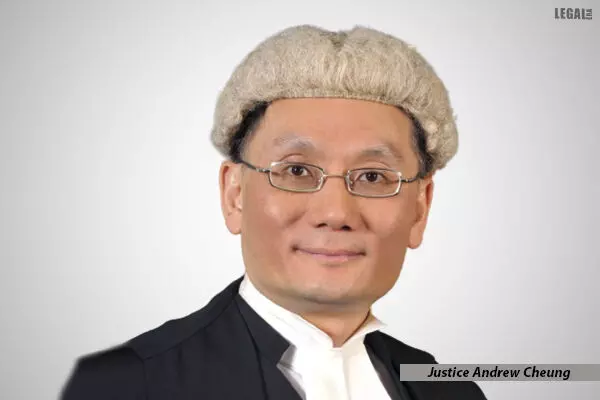- Home
- News
- Articles+
- Aerospace
- Artificial Intelligence
- Agriculture
- Alternate Dispute Resolution
- Arbitration & Mediation
- Banking and Finance
- Bankruptcy
- Book Review
- Bribery & Corruption
- Commercial Litigation
- Competition Law
- Conference Reports
- Consumer Products
- Contract
- Corporate Governance
- Corporate Law
- Covid-19
- Cryptocurrency
- Cybersecurity
- Data Protection
- Defence
- Digital Economy
- E-commerce
- Employment Law
- Energy and Natural Resources
- Entertainment and Sports Law
- Environmental Law
- Environmental, Social, and Governance
- Foreign Direct Investment
- Food and Beverage
- Gaming
- Health Care
- IBC Diaries
- In Focus
- Inclusion & Diversity
- Insurance Law
- Intellectual Property
- International Law
- IP & Tech Era
- Know the Law
- Labour Laws
- Law & Policy and Regulation
- Litigation
- Litigation Funding
- Manufacturing
- Mergers & Acquisitions
- NFTs
- Privacy
- Private Equity
- Project Finance
- Real Estate
- Risk and Compliance
- Student Corner
- Take On Board
- Tax
- Technology Media and Telecom
- Tributes
- Viewpoint
- Zoom In
- Law Firms
- In-House
- Rankings
- E-Magazine
- Legal Era TV
- Events
- Middle East
- Africa
- News
- Articles
- Aerospace
- Artificial Intelligence
- Agriculture
- Alternate Dispute Resolution
- Arbitration & Mediation
- Banking and Finance
- Bankruptcy
- Book Review
- Bribery & Corruption
- Commercial Litigation
- Competition Law
- Conference Reports
- Consumer Products
- Contract
- Corporate Governance
- Corporate Law
- Covid-19
- Cryptocurrency
- Cybersecurity
- Data Protection
- Defence
- Digital Economy
- E-commerce
- Employment Law
- Energy and Natural Resources
- Entertainment and Sports Law
- Environmental Law
- Environmental, Social, and Governance
- Foreign Direct Investment
- Food and Beverage
- Gaming
- Health Care
- IBC Diaries
- In Focus
- Inclusion & Diversity
- Insurance Law
- Intellectual Property
- International Law
- IP & Tech Era
- Know the Law
- Labour Laws
- Law & Policy and Regulation
- Litigation
- Litigation Funding
- Manufacturing
- Mergers & Acquisitions
- NFTs
- Privacy
- Private Equity
- Project Finance
- Real Estate
- Risk and Compliance
- Student Corner
- Take On Board
- Tax
- Technology Media and Telecom
- Tributes
- Viewpoint
- Zoom In
- Law Firms
- In-House
- Rankings
- E-Magazine
- Legal Era TV
- Events
- Middle East
- Africa
Hong Kong: Overseas judges, hear national security cases

Hong Kong: Overseas judges, hear national security cases
Andrew Cheung, emphasises that Hong Kong's judiciary remains liberated
According to Hong Kong's chief justice Andrew Cheung, overseas judges are not prohibited from hearing controversial cases about Chinese national security because of their nationality.
According to Cheung, foreign judges' first-hand knowledge of Hong Kong's bench could be the "best evidence" of the rule of law in the Special Administrative Region.
"Judicial independence exists in Hong Kong as a fact," Cheung also said in defending fellow local judges who apply the controversial national security law (NSL) imposed by Beijing.
Since the handover to China in 1997, Hong Kong's Court of Final Appeal (CFA) has been populated by prominent overseas judges, from the UK, Australia, New Zealand and Canada widely regarded as a testament to the city's rule of law.
In addition to the president and deputy president of the UK Supreme Court, Lord Reed and Lord Hodge, there are presently 16 overseas judges appointed as non-permanent judges in the CFA. The government agreement has been questioned by legislators and activists from Canada and the UK, who claim it legitimizes the controversial National Security Law.
At last week's opening of the Hong Kong legal year ceremony, Cheung told Global Legal Post that there is no nationality requirement for judges to be designated as designated judges at any level of court.
He qualified his response by stating that there has only been one practical plea to reach the CFA since July 2020 without an overseas judge. Another two cases were heard by judges who weren't normally involved with overseas cases.
The "best evidence" about confidence in Hong Kong courts comes from Lord Hodge's appearance on the Hong Kong bench in November to take the judicial oath and hear two non-NSL cases.
It speaks for itself that Lord Hodge came to Hong Kong and heard cases, as well as the statements made previously by the UK Supreme Court about their continued support and participation in the CFA," Cheung said. He added that six overseas judges had extended their terms in 2021, though others declined to.
According to Lord Reed, such judges could give Hong Kong's judiciary "practical support" at an Oxford conference. They would be regrettable to the Chinese authorities and would lose face, but would be of no benefit to Hong Kong.
In response to a question about whether British judges can continue to sit in Ireland, Reed said: "British judges have to think very carefully indeed whether they can continue to sit there or not. We have taken the view that the benefits of continuing to sit in Ireland outweigh the risk to our reputation, which I realize we face and keep it under review."
He said that his assessment was well balanced.
Also criticized is Carrie Lam's power to choose judges for national security cases, including Cheung's own appointment. The chief justice has responded that the NSL will not affect the impartiality of Hong Kong's courts.
Earlier, he noted that judges were assigned to specific cases by senior judicial leaders, while all those chosen had taken judicial oaths. However, he dodged a question about the exact number of national security judges, saying the number and criteria are under the purview of Hong Kong's chief executive.
Judges tasked with hearing national security cases had also received threats, which he and the Hong Kong justice department compared to attacks against the city's rule of law.



